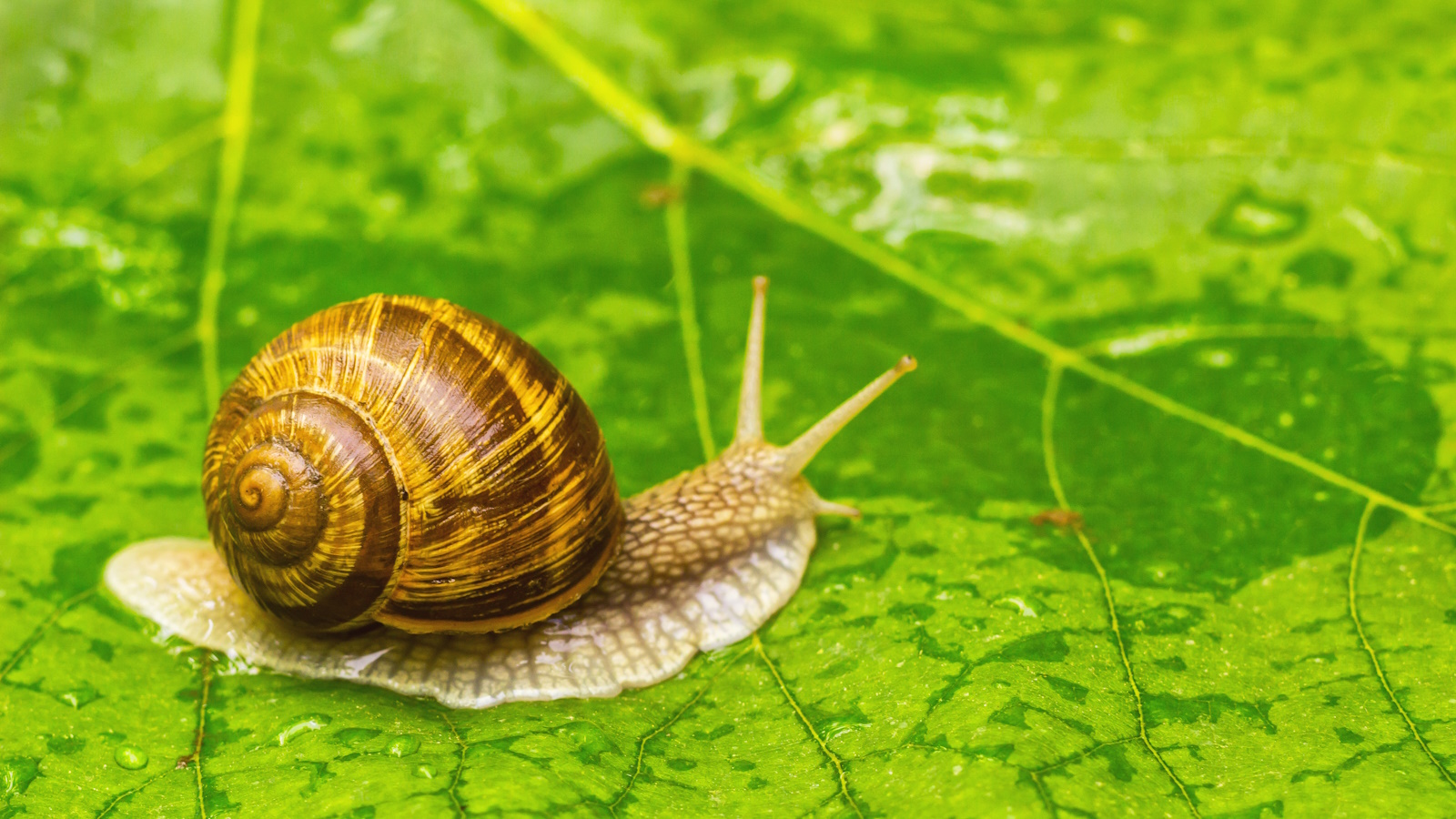
Snails can be wonderful wildlife to see in your backyard and they play an important role in recycling nutrients and improving soil health. However, they can become a nuisance when they munch on leaves and cause damage to your plants.
Like slug repellent plants, there are many plants that will naturally deter snails from areas of your yard. Whether you plant a fragrant garden or choose dense foliage, there are a few careful choices you can make in your yard to keep snails away.
We've compiled an expert list of the best snail repellent plants so that you can create a yard safe from snail damage.
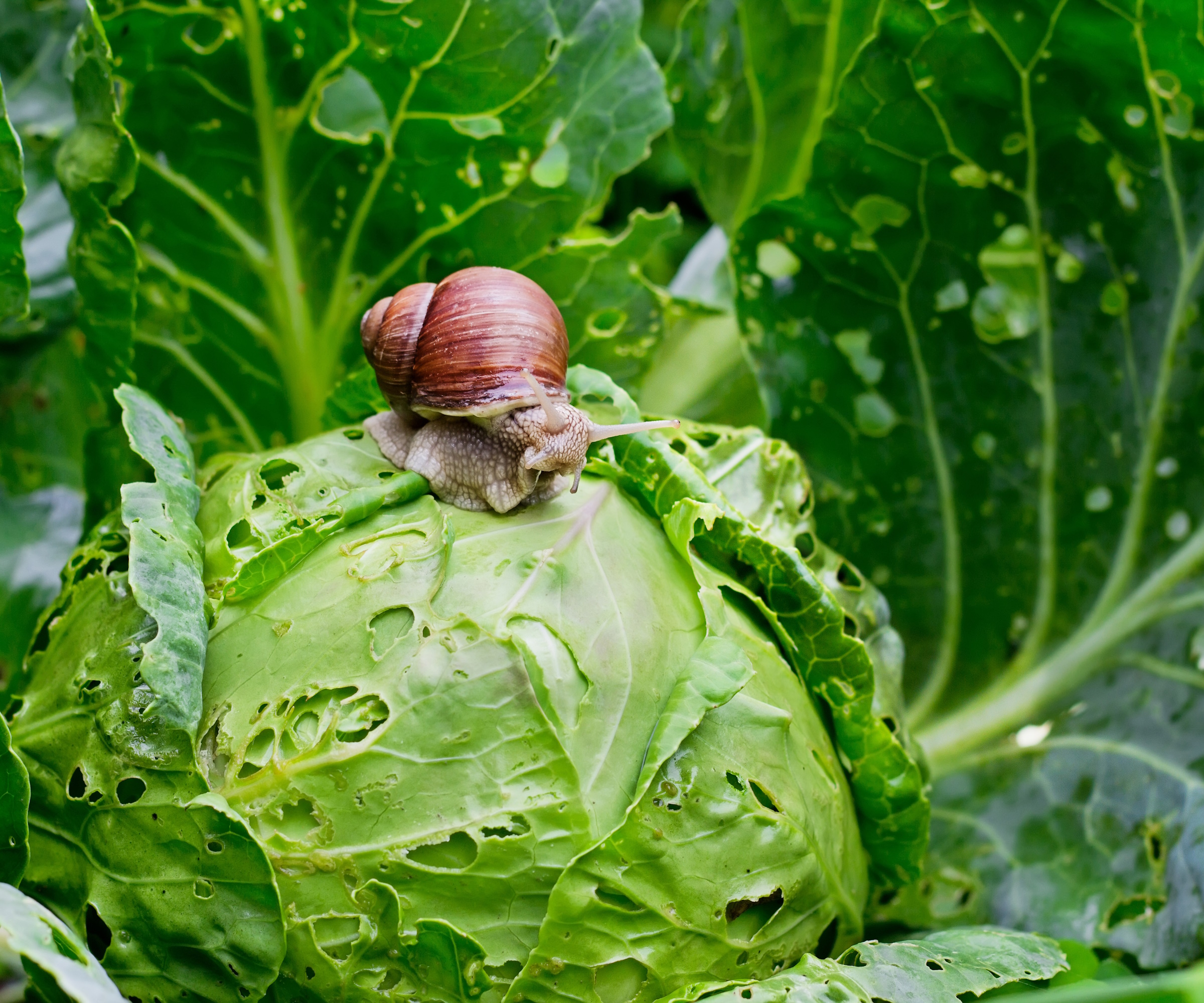
5 snail repellent plants
If you have a problem with snail damage in your backyard, try making careful planting choices to naturally deter them. Here are the best snail repellent plants for you to explore.
1. Ferns
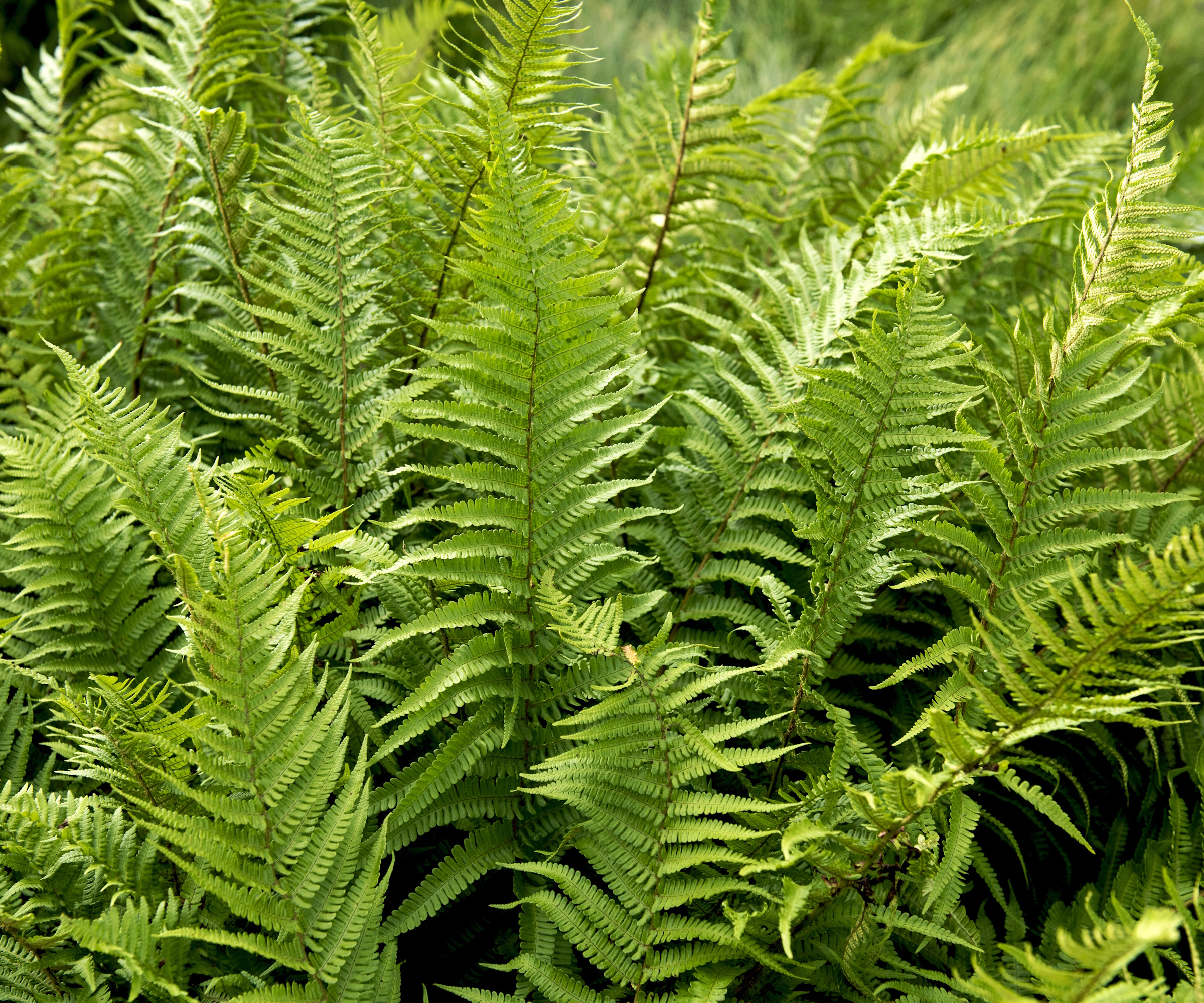
To create a snail-repellent boundary, choose plants with dense foliage that makes it hard for them to bite through - such as growing ferns around the area you would like to protect.
'Ferns have tough leaves which snails don’t eat,' says Nicole Carpenter, President of Black Pest Prevention. 'Since environments enriched with food sources are more appealing to snails, planting ferns that are less appealing to them can help you keep snails at bay,' she adds.
There are many varieties of ferns but choosing those with thicker leaves, such as this robust male fern from Nature Hills, will best create an unfavorable environment for snails.
Fern varieties generally grow well across US hardiness zone 4 to zone 8 and there are also plenty of ferns for shade if you are working with a darker area of your yard.
2. Euphorbias
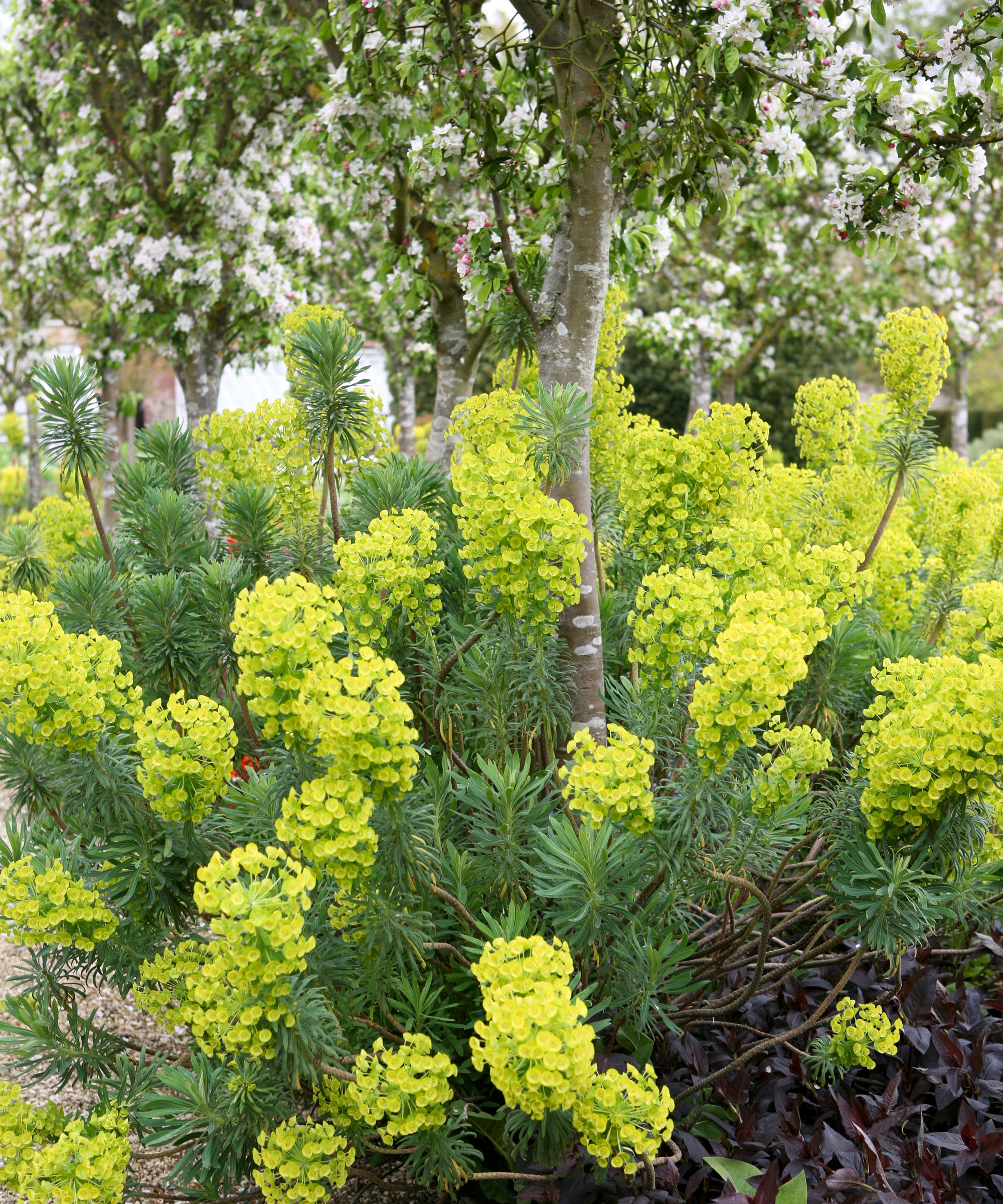
If you're hoping to get rid of snails in your yard, choosing euphorbias is an effective solution. These flowering shrubs are evergreen with beautiful lime-green flowers but they aren't liked by snails.
'These plants contain a milky sap called latex that can be irritating to snails and other insects, making euphorbias an excellent snail repellent choice,' says Jana McDaniel, garden expert and founder of First Saturday Lime.
The latex produced by euphorbias irritates snails when they come into contact with it. 'This deters snails from eating them and since snails typically infest areas where they can effectively find food, gardens with plants that are unappetizing to snails are less susceptible to their damage,' says Nicole.
Euphorbias grow best across US hardiness zone 5 to zone 11 and can be found from a range of suppliers, like this Martin's Spurge from Nature Hills.
3. Foxgloves
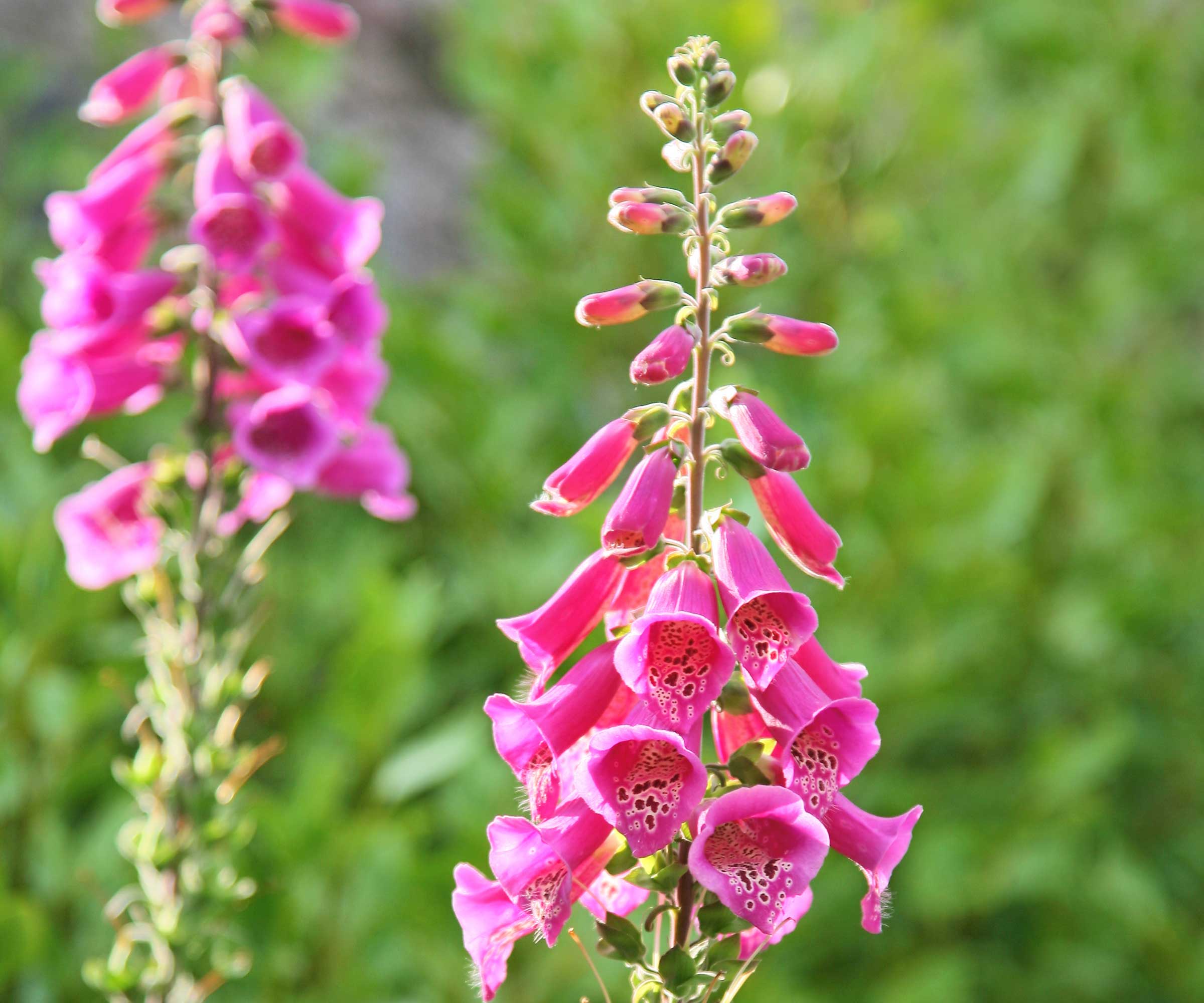
Repellent plants are often some of the most beautiful for our yards, such as growing foxgloves. These spikes of bell-shaped flowers come in a range of colors that flower through spring, and they're well known for being poisonous.
'When snails come into contact with foxgloves, they are harmed by its toxic compound called digitalis,' says Nicole. 'By planting foxgloves around your garden, you can create a natural barrier that helps protect other plants from snails,' she adds.
Foxgloves grow best in US hardiness zone 4 to zone 9 where they can be grown in full sun or full shade, depending on the variety. You can grow them easily from seed, like with these foxglove seeds from Amazon, and keep them blooming for longer by deadheading foxgloves after flowering.
4. Rosemary
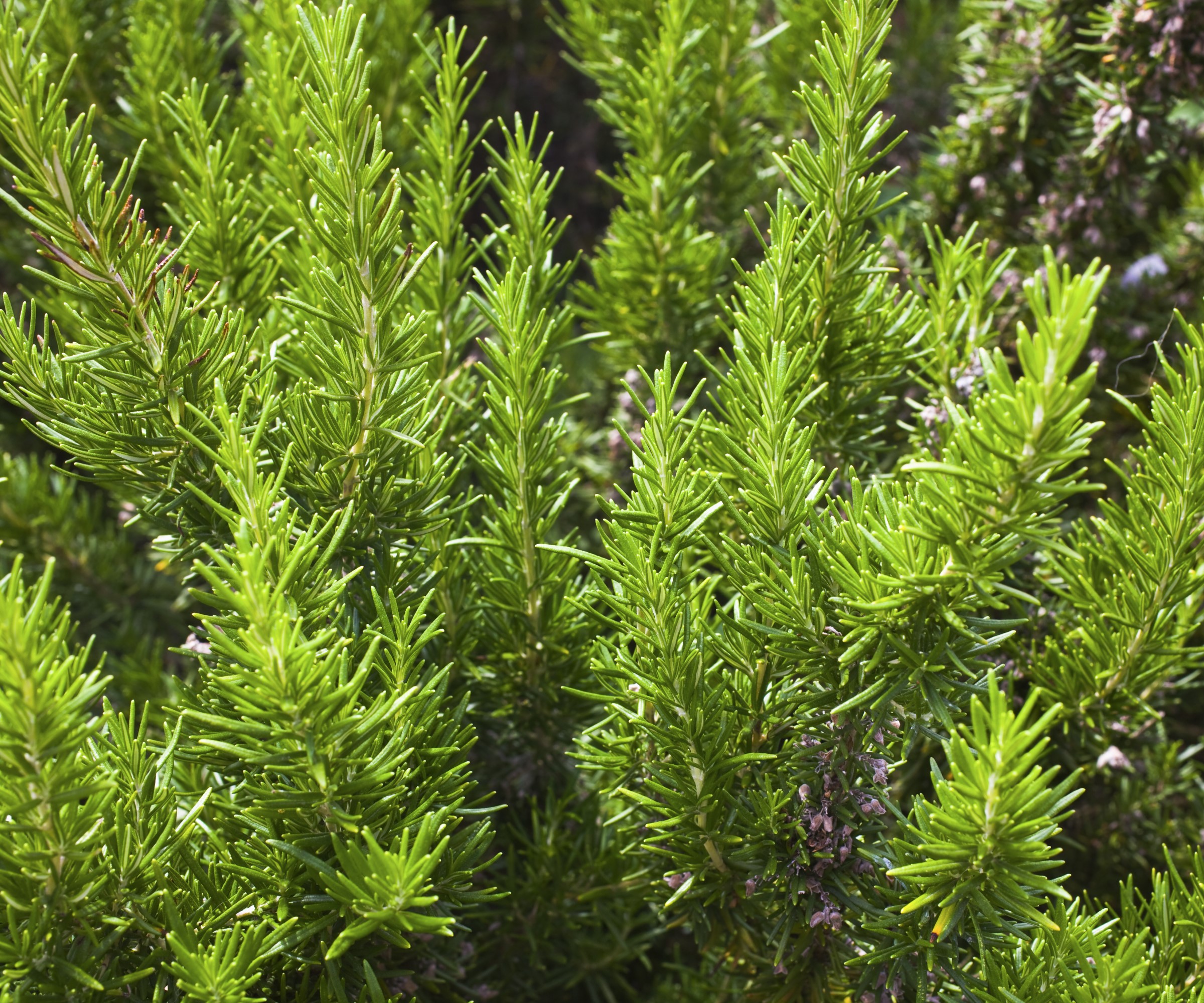
Just like snake repellent plants and mouse repellent plants, some of the most effective snail repellent plants are those that are fragrant. This is why many gardeners choose to grow rosemary around areas they would like to keep snails out of.
'Snails tend to avoid rosemary as the leaves have a strong scent and are too tough for snails to consume,' says Nicole.
'Planting rosemary around susceptible plants can help create a protective barrier,' Jana suggests.
You can grow rosemary varieties in US hardiness zone 8 and zone 9 and it makes an effective companion plant in vegetable gardens to keep your crops safe from pests.
Shop for rosemary plants from supermarkets, nurseries and online, like this rosemary plant from Walmart.
5. Mint
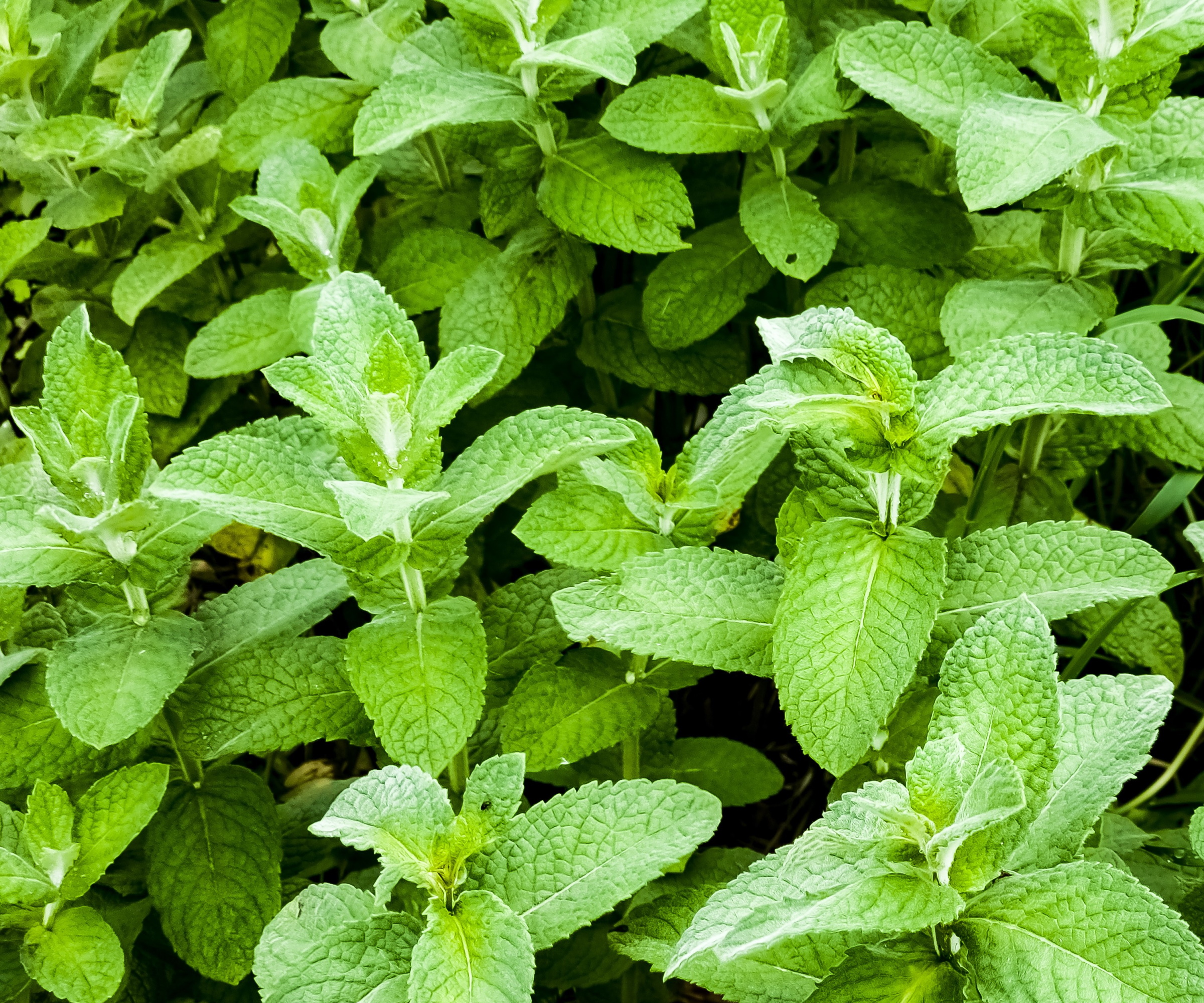
Just like rosemary, choosing mint varieties for your yard can keep snails away due to their pungent scent. Growing mint is easy and also makes a tasty addition to your herb garden.
'The scent of mint deters snails because they use their olfactory system to locate food and avoid predators,' explains Nicole. 'A strong scent of mint or rosemary masks the scents of food and predators, making the environment less appealing for snails,' she adds.
You can effectively create a barrier by planting aromatic herbs together. This can help protect other crops or areas in your yard. Make sure to keep on top of pruning mint to keep it thriving.
Mint tends to grow well across US hardiness zone 3 to zone 8 and can be bought from supermarkets and other suppliers, like this mint plant from Walmart.
FAQs
Which plants are snails most attracted to?
Snails like to munch on young leafy and vegetable plants, and they don't do well with fragrant plants or those with dense foliage. The plants most susceptible to snail damage include lettuce, cabbage, hostas and lilies. If you notice small holes in your plants, it could be a sign that snails or other pests are munching on them. Try planting repellent plants that will naturally deter snails from your yard to keep your plants safe.
You can deter snails by making careful planting choices. Try incorporating these plants in your backyard if you have an area you would like to protect from snail damage.
If you have a large snail problem, you might find out expert guide on slug control methods helpful. Likewise, you might find it interesting to find out how snails and slugs are good for the backyard.







